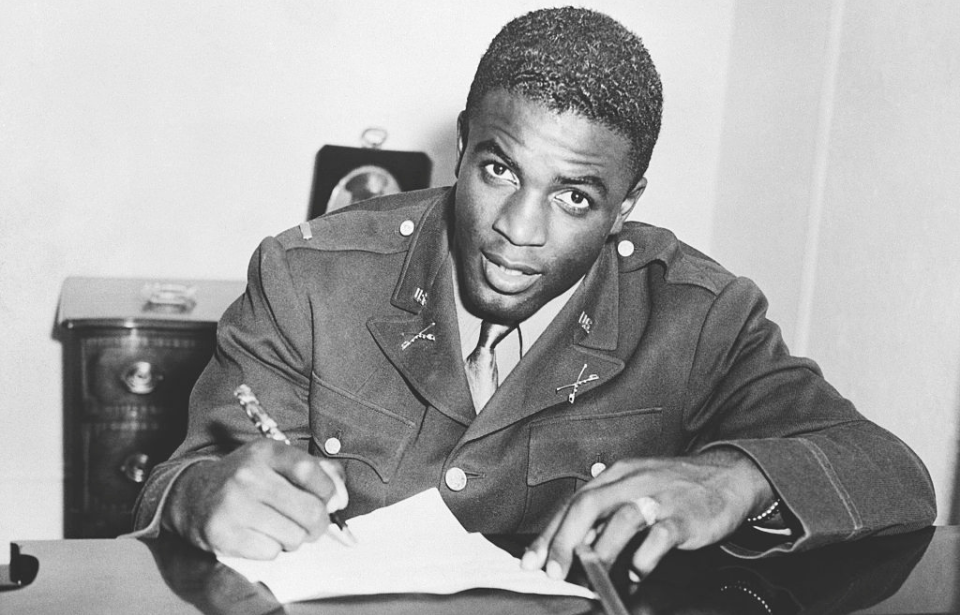Jackie Robinson is remembered as the first African-American baseball player to break the color barrier and play Major League Baseball (MLB) in the modern era. A few years before he made his debut at Ebbets Field, his future was decided when he was court-martialed at Camp Hood, Texas. His crime: standing up to racial prejudices in the US Army.
If he had been found guilty, history might be very different.
Jackie Robinson’s early life
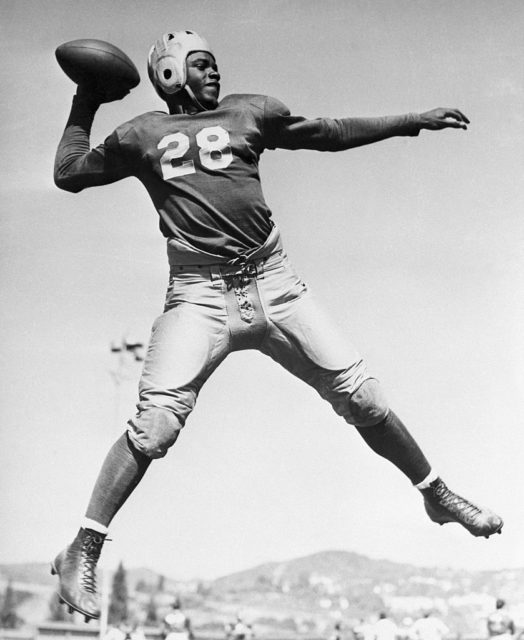
Jack Roosevelt Robinson was born in Cairo, Georgia on January 31, 1919. He enrolled at the University of California, Los Angeles after graduating from Pasadena Junior College. At UCLA, he became the firs athlete to win varsity letters in four different sports: baseball, track, basketball and football.
After the Japanese attack on Pearl Harbor and America’s entrance into the Second World War, President Franklin D. Roosevelt ordered that African-American men register for the draft. However, due to racial prejudices in the United States throughout the 1940s, it was decided the military would remain racially segregated.
Drafted into the US Army
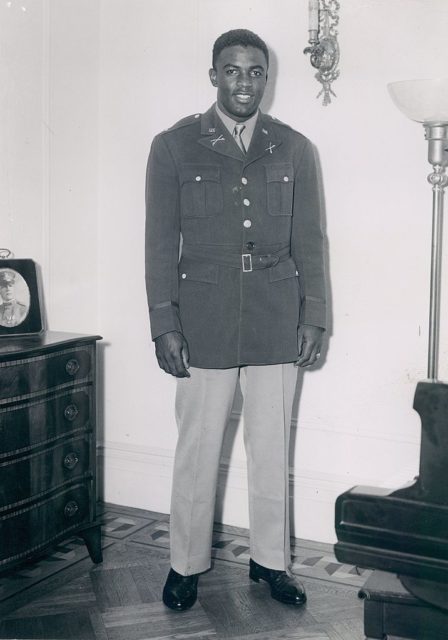
In April 1942, Jackie Robinson was drafted into the US Army. He was assigned to a segregated cavalry at Fort Riley, Kansas. Soon after, he applied to Officer Candidate School (OCS), as he held all the necessary qualifications. Despite this, his application was rejected. The Army’s policy allowed Black officers to be trained at integrated facilities, but very few had this opportunity.
After his application was rejected, Robinson appealed to heavyweight boxing champion Joe Louis, who was also stationed at Fort Riley. With the help of Louis and Truman Gibson, an assistant civilian aide to the Secretary of War, the future star baseball player was accepted into the OCS.
Following his graduation, Robinson was transferred to Camp Hood, Texas, where he was assigned to the 761st Tank Battalion – better known as the Black Panthers.
An experience slightly similar to Rosa Parks
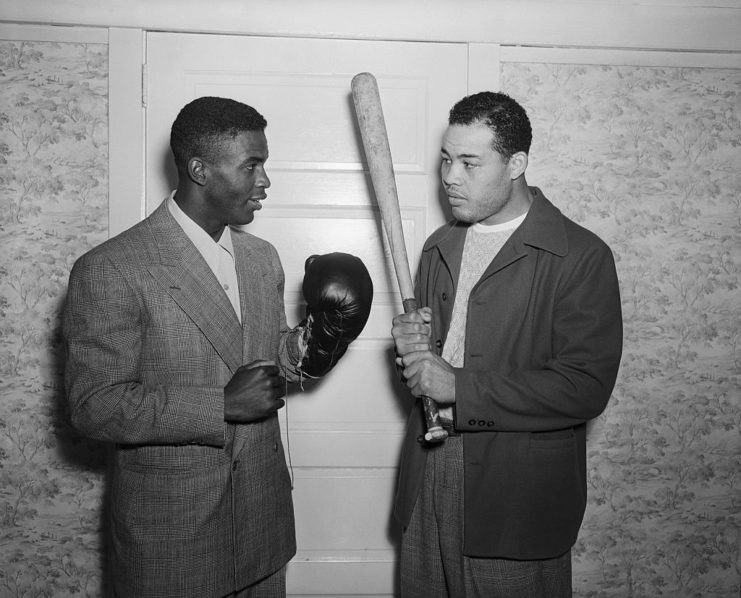
As acting morale officer for a company at Fort Riley, it wasn’t surprising that Jackie Robinson took it upon himself to reject many of the segregated practices at Camp Hood. Despite being a football star at UCLA, he refused to join Fort Riley’s football team if he couldn’t also play baseball on the all-White baseball team. When his commanding officer reminded him that he could be ordered to play football, Robinson told his commanding officer that he couldn’t be ordered to “play well.”
Robinson’s most significant act of resistance to the US Army’s segregated policies came on July 6, 1944. Camp Hood had a terrible reputation among its African-American officers. The base was completely segregated, and the nearby towns of Killeen and Temple were very unfriendly to Black soldiers.
It was difficult for African-Americans stationed at Southern bases to obtain transportation. On July 6, Robinson was awaiting test results for an ankle injury he’d been dealing with since junior college. He’d left the hospital to socialize with some friends, and a few hours later hopped on an Army shuttle bus to return to the hospital to receive his test results.
Once on the bus, Robinson recognized Virginia Jones, the wife of a lieutenant from the 761st Tank Battalion. He sat down beside her in the middle of the vehicle, and the two started chatting. After driving a few blocks, the bus driver yelled at Robinson to “get to the back of the bus.”
Although public transportation in the deep South remained segregated during the Second World War, rules were different on military bases. In March 1943, the War Department ordered the desegregation of recreation facilities on bases, and the following year had mandated that all military buses operate in a non-discriminatory way.
Robinson knew this and explained to the bus driver that “the Army recently issued orders that there is to be no more racial segregation on any Army post. This is an Army bus operating on an Army post.” The pair continued to argue at Robinson’s designated stop, and a crowd of onlookers – both civilian and military – formed around them.
Two military officers arrived at the scene and brought Robinson to their headquarters for questioning, where he continued to face racist and unfriendly remarks. The officers claimed he conducted himself in a “sloppy and contemptuous” manner.
Jackie Robinson is charged with six violations
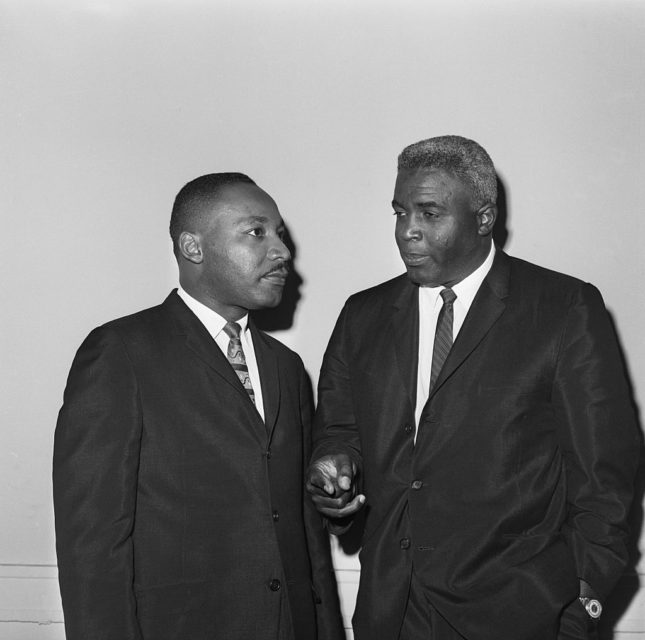
On July 17, 1944, Jackie Robinson was charged with six violations of the Articles of War: insubordination, disturbing the peace, conduct unbecoming of an officer, insulting a civilian woman, drunkenness and refusing to obey a lawful order of a superior officer. His commanding officer, Col. Paul Bates, refused to authorize the charges, so Robinson was transferred to the 785th Tank Battalion, whose commanding officer signed off on the charges.
Four charges had been dropped by the time of Robinson’s court-martial in August 1944. Those that remained were also reduced to two counts of insubordination during questioning. Although the dismissal of the more serious charges should have worked in his favor, there was to be no mention of the encounter Robinson had on the bus – he was now on trial not for that incident, but for being “disrespectful” toward his commanding officers.
Acquitted of all charges
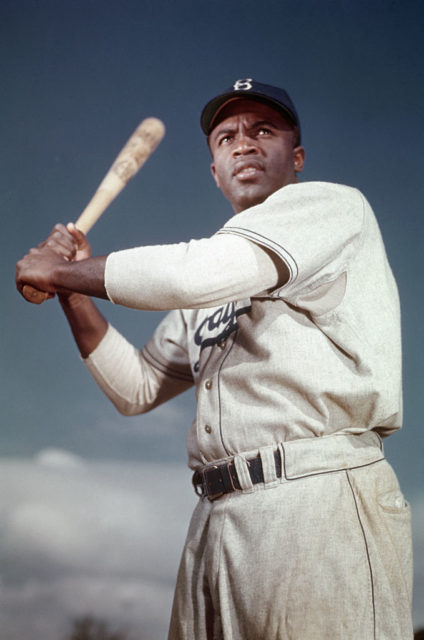
After four and a half hours of testimony, the court-martial tribunal composed of nine White US Army officers, acquitted Jackie Robinson on all charges. Luckily, he and his lawyer were able to counter all the claims made against him.
More from us: Eddie Slovik: The Only US Solider to Be Executed for Desertion Since the Civil War
Following his acquittal, Robinson was transferred to Camp Breckinridge, Kentucky, where he served as an athletics coach. He received an honorable discharge in November 1944, and less than three years later resisted segregation by integrating the MLB.
